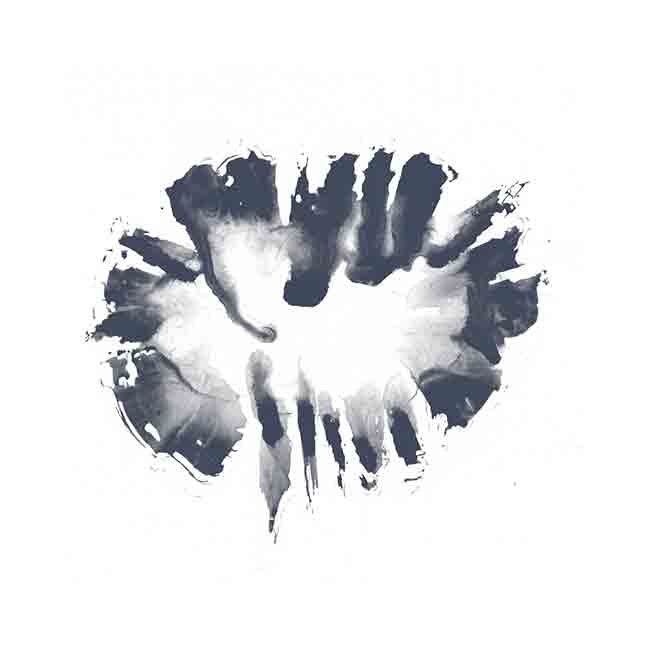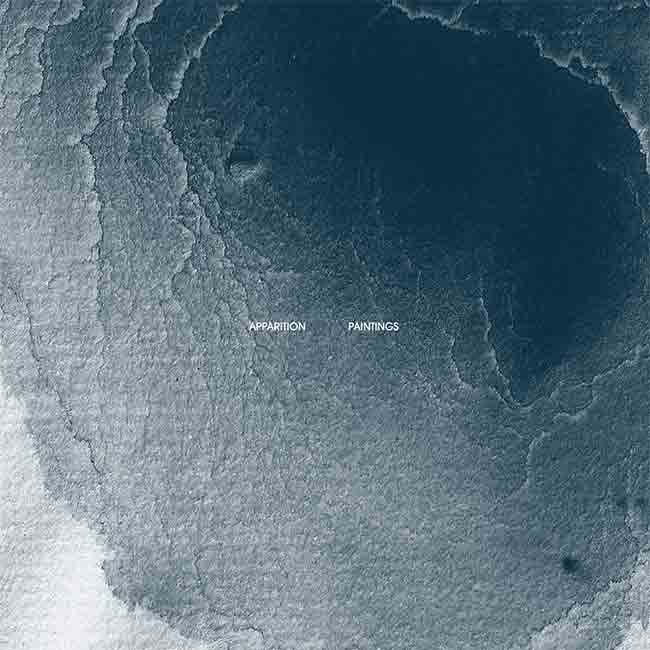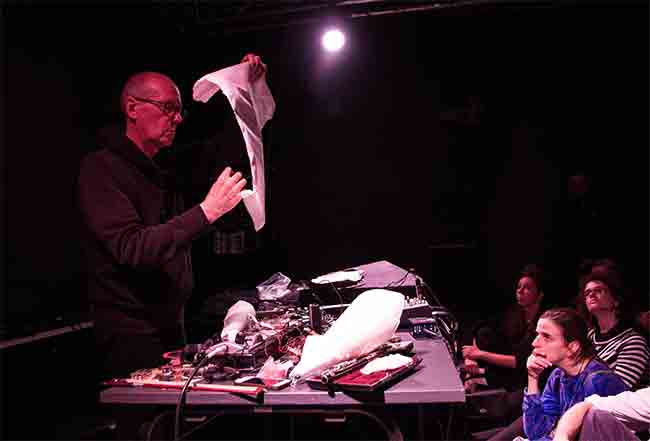
Field Recording and Fox Spirits, David Toop (Room40)
Apparition Painting, David Toop (Room40)
David Toop is an astute and open-minded writer, who for many years now has been thinking about the nature of sound and music and gathering those thoughts together in volumes such as Ocean of Sound and Haunted Weather. More recently Sinister Residence turned the discussion around to discuss ‘the mediumship of the listener’, making the listener as active as the musician, and Flutter Echo was actually a digressionary autobiography peppered with philosophy, theory and anecdote as much as personal revelation.
He has also made music throughout his career, music that is often hard to describe or label. Ambient, improvisation, exploratory sound works, cultural anthropology, isolationist? No, none of those really fit. And they have to sit alongside a slew of ‘curated albums’ he assembled at the end of the 20th century (often to sit alongside his books). However hard to describe, they amount to a fascinating and complex output, now joined by two new CD releases from the Room40 label. And Toop doesn’t care anyway: on the press release for one of these he says ‘Don’t ask me about genre or consistency. Who cares?’ Ok then, let’s listen to the music.

Apparition Painting is perhaps the more expected of the releases. Quiet soundscapes, ambient songs, lots of guest collaborators, combine to make an intriguing yet disparate album. Toop explains that the title is a term used to describe ‘a certain type of ancient Chinese painting [where] the ink used to depict the subject was exceptionally pale, the background lacking any detail’. One might think of similar conceptual frameworks such as Jon Hassell’s ‘bluescreen music’ or even Eno’s descriptions of ambient music, but there is more detail and things to notice in Toop’s music than this might suggest.
There is, however, a sense of dislocation and lack of context. How does the synthesized guitar (?) workout of ‘All I desire’ fit with the more abstract percussion and guest vocals of ‘When I first came here (I thought I’d never get used to the trains, now when it’s quiet I get nervous)’? And what do the appropriated titles have to do with the music? Do they suggest or imply a context or narrative or are they simply a provocation?
They are not ‘pale’ either, this music is very much there, as much as sound can be as it reverberates through the air into the ear (in my case via hearing aids). Toop also talks about ‘self-disassembling images that somehow compromise their own visibility’ but I think he does himself a disservice. These are (thankfully) not three minute pop songs, and they do require listening to, but actually we live in a world where audiences are more and more fragmented and (in my opinion) more open to and able to listen to, far more types of music than previously, as the concept of music charts or even popular music, becomes less and less important or imaginable.
So for me, this is very real, careful music. I like the fact the sense of curatorship and assemblage here, the traces of careful listening and careful selection as this music is assembled and composed. Eno suggested a long time ago that the studio was as much as instrument now as any guitar or keyboard, and I think it’s evident here. Not because of any studio trickery, but simply because so much of this music seems to do with juxtaposition and combination of music made in the past, music made through improvisation and experiment, as much as music specifically made for the track bing recorded.
This approach is even more evident on Field Recording and Fox Spirits, ‘a collection of personal recordings’. I actually like this album more than the other, it is stripped back, less layered or composed, and insists upon being paid attention to: it really does disappear if you don’t. It is a form of time travel, sound that counters transience and the moment yet also embraces it, and also an aural biography of David Toop.
A wasp from 1971 hovers in the sound field, followed by a short recording of drum and flute from two years later; there are fragments of improvised concerts, brief excerpts of conversations with known and unknown artists & musicians, frogs calling, a cityscape from Beijing, blind musicians busking in Thailand… All offered to us to listen to. Why would we listen to a wasp? Is there really any trace of Somerset or the summer of 1971 there? I don’t know, but there might be. I don’t normally listen to wasps, and to do so is fascinating. What is it’s relationship to the flute and drums up next? Nothing except they are neighbouring sounds on this album, or am I missing something? Is Syd Senior, who Toop converses with on track 3, commenting on the music directly, and if not why is what he his saying placed there? A similar question can be asked of Ornette Coleman’s pronouncements on track 14. It is a conundrum, perhaps best experienced as a sequence of moments.
Or perhaps Toop is playing with us? The fox in the CD title appears not to have actually existed, although Toop says he saw it. So this is also a ghost story in 18 chapters, a past we never knew come to haunt us: bells in the distance, sounds of nature, and David Toop’s daughter singing a child’s song. Its is, of course, also the now we are experiencing as we listen, just like any album. Toop explains that in Strange Tales from a Chinese Studio, a 17th/18th century book, ‘fox spirits inhabit the physical spaces of living humans in a variety of guises. Some are malicious, some benign.’

The musical spirits David Toop has assembled here seem mostly benign, though they may surprise, annoy or cause us to reconsider what we think about music and sound, what we listen to or ignore in our lives. Both these CDs have come to haunt me, demanding a re-listen and provoking much self-reflection and interior discussion. They are fascinating, elusive and original creations, innovative as much for their positioning within and understanding of contemporary music and sound as the tracks themselves.
Rupert Loydell
David Toop, ‘Suddenly the World Had Dropped Away’
